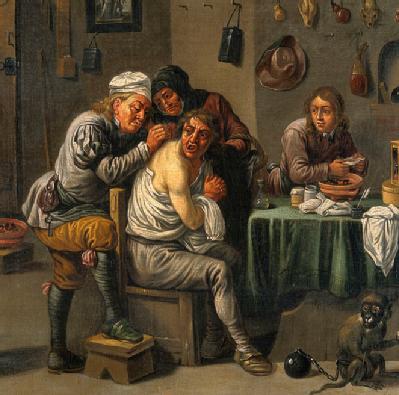Withdrawn Module: Medicine, Disease and Society in Britain (HI156)
 Please note that this module was available
Please note that this module was available
until 2010, but has since been
withdrawn and is no longer available.
Tutor: Dr Jane Adams
This undergraduate first-year and second-year option module introduces students to a series of ongoing debates within the social history of medicine, and encourages them to situate sickness, disease and the provision of medical care in a broad social, demographic, economic, political and cultural context. The module aims to provide a deep understanding of how these different contexts shaped medical thought and practice between 1750 and 1950. It focuses on professionalisation and specialisation, the rise of medical institutions, the types of care offered by charitable, voluntary and self-help sources, and how patients experienced the care they received. The module will look at the evolving relationship between doctors and patients, and the impact of poverty, class, gender and ethnicity on this relationship. The module will also cover population and urban growth and changing patterns and understandings of disease. Other themes include midwifery and childbirth, developments in medical science, and the relationship between war and medicine. The module will be based on British sources and will seek to give students a feel for regional difference, the role of the metropolis and centres of learning compared with provincial medical practice and medicine at the periphery. While the module will be based largely on secondary readings, it will aim to introduce students to a small selection of primary source material, including patients’ narratives, film and pictorial sources.
